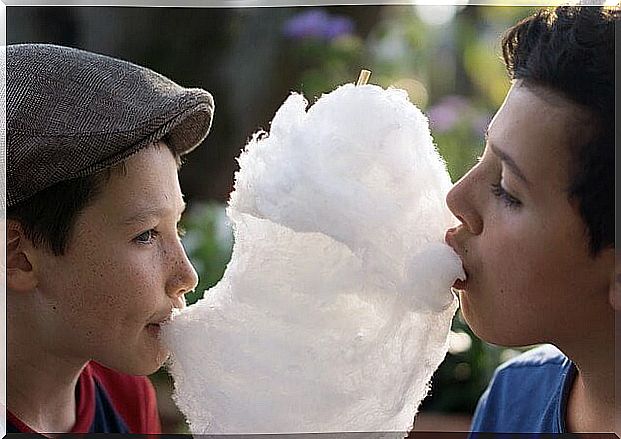What To Do When A Child Doesn’t Cooperate

If your child is uncooperative, the best thing you can do, without a doubt, is to provide options.
Options are the most useful tools for managing life with young children, and also for them to learn to cooperate at home. Giving alternatives to the little ones in the house is almost like having a magic wand.
A very easy-to-understand example for giving children options might be:
“Do you want to go to bed now or in five minutes? In five minutes? Okay, but you’ll have to go to bed in five minutes without arguing.”
In this example, the child will obviously decide for the extra five minutes.
Giving options is always the best solution
You may well be wondering right now how this trick works so well: it sounds too good to be true!
This option is the best solution because it is a “win-win” situation. What does that mean?
It means that neither party loses, the child does not feel that something is being imposed and you give options so that everything is ok and everyone is happy.
So, if your child chooses one of the two options, everyone leaves the situation happy, the power struggles are in the past, and you won’t be forcing your son or daughter to do something.
Rather, he or she is making the decision to do it or not to do it. Thus, you avoid behavior problems.
You need to know that when a child doesn’t cooperate, it’s because he doesn’t like to feel obligated to do something.
When the perspective changes and she realizes that she is the protagonist of the choice, cooperation comes right away. But for the technique to work, it needs to be well executed. So how to do this?

Set limited options
Never more than two or three. And they should be inviting to your child, as long as it’s not unacceptable to you.
For young children, the options need to be just two and easy to understand. For example: “Do you want to put on the jacket or do you want me to dress you?”
But as children get older, the options can get a little complicated, being adapted to them.
For example: “If you don’t want to play football, that’s fine. But choose a physical activity to practice”. Thus, they will feel more independent and in charge of their own decisions.
Children must understand that they have responsibility.
It is necessary that the options used with a child who does not cooperate – and the goal is for him to cooperate – must be formulated in such a way that he can carry them out correctly.
For example, you can tell your child that when he finishes his homework, he can go for a walk or do some crafts. This way, your child can choose the option that interests him most without feeling it was an imposition.
But instead, if you say, “After you’ve done your homework, we’ll do crafts,” your child may not want to do either homework or crafts just because he feels he’s being obligated by you.

The consequences will always exist
Something important that children should learn from this technique is that every action has a consequence (positive or negative).
For example, if your child has a test, you can say that it is his choice to study to get a good grade and that if he doesn’t, it will have negative consequences. That way, passing or not will have been his decision.
It is necessary that the options that you offer your children to be bearable for you.
For example, if you don’t want him to repeat a year under any circumstances, you should help him learn study skills, be motivated and be a better student.
All of this advice is suitable for any child who is uncooperative in the daily activities of the house. But don’t forget that empathy is the most important thing for your child to understand that things can go well.
Your child needs to feel understood. This way, you can make a better decision. Let go of power struggles and be consistent with the consequences you set, as a child who cooperates more is much happier at home.









